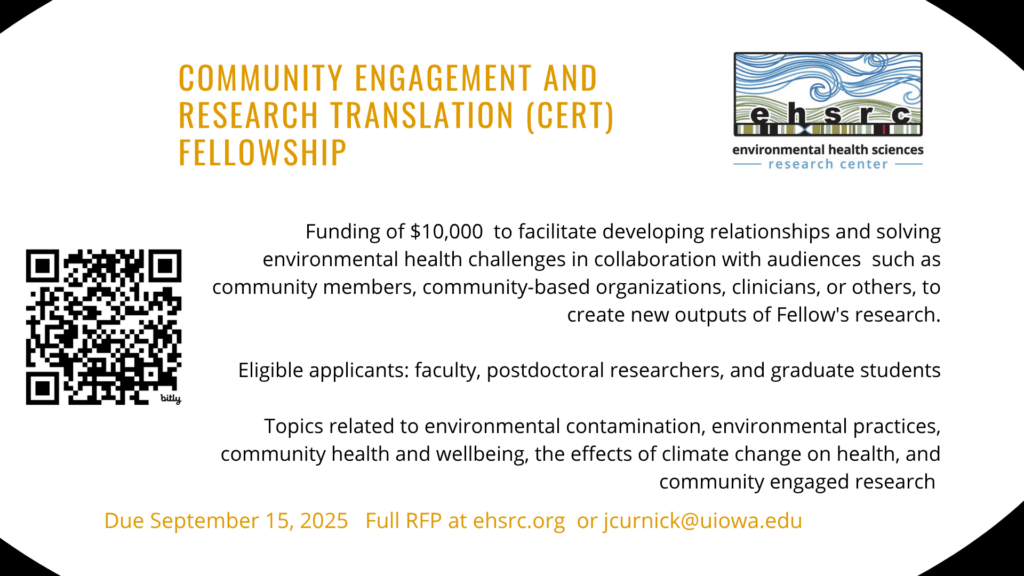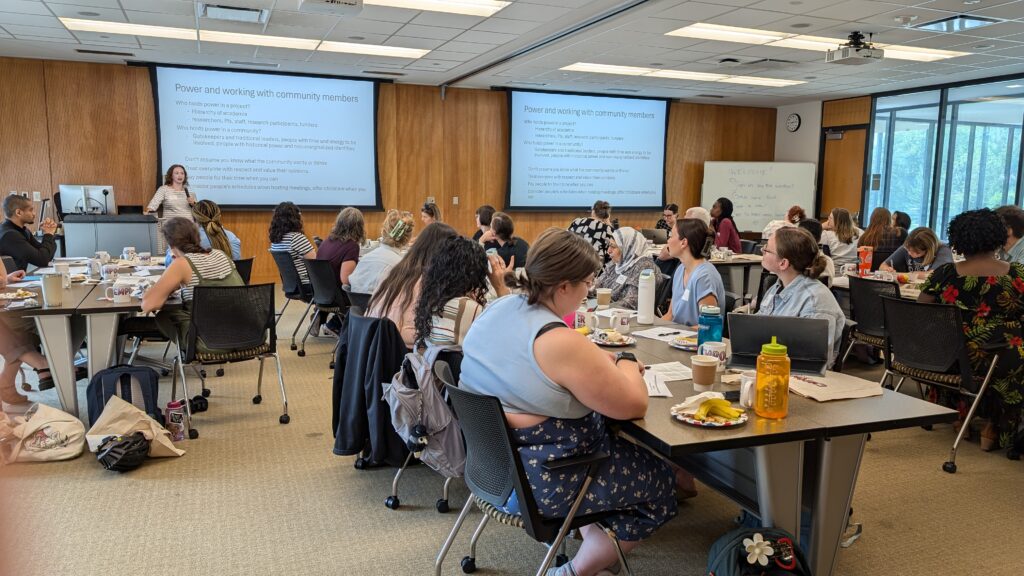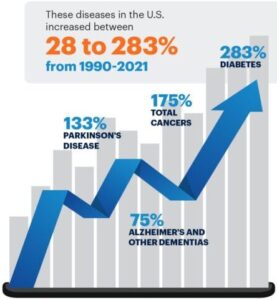Due September 15, 2025
The Environmental Health Sciences Research Center (EHSRC) at the University of Iowa is pleased to announce funding available of up to $10,000 available to facilitate community engaged and translational research related to environmental health.

 The EHSRC has released a new
The EHSRC has released a new 
 Chronic diseases including cancer, diabetes, Parkinson’s Disease, chronic respiratory disease, and childhood neurodevelopmental disorders have increased dramatically in the United States over the past few decades. Research shows that these diseases are linked to environmental factors such as air pollution, microplastics, and harmful chemical exposures.
Chronic diseases including cancer, diabetes, Parkinson’s Disease, chronic respiratory disease, and childhood neurodevelopmental disorders have increased dramatically in the United States over the past few decades. Research shows that these diseases are linked to environmental factors such as air pollution, microplastics, and harmful chemical exposures. NIEHS is at the forefront of conducting research that protects public health by revealing how environmental factors impact health and disease and supporting communities in responding to environmental disasters such as chemical spills and extreme weather events like hurricanes. NIEHS P30 environmental health research centers are at the core of this mission by advancing scientific understanding, addressing emerging public health threats, improving community health, and reducing health care costs.
NIEHS is at the forefront of conducting research that protects public health by revealing how environmental factors impact health and disease and supporting communities in responding to environmental disasters such as chemical spills and extreme weather events like hurricanes. NIEHS P30 environmental health research centers are at the core of this mission by advancing scientific understanding, addressing emerging public health threats, improving community health, and reducing health care costs.